Ekushey shouldn't be consigned to routines and rituals

As we observe the 72nd anniversary of the historic Ekushey February, we humbly recall the sacrifices made by the martyrs and all those who were engaged in the fight to put Bangla—and mother tongue—in its rightful place. It was, and remains, a pivotal moment in history, a symbol of people's unwavering commitment to preserve their linguistic heritage and resist linguistic oppression. The sacrifices made all those years ago still resonate profoundly in today's world where globalisation and technological advancements often blur cultural boundaries, making preservation of one's mother tongue that much important. Language is not just a tool for communication; it is a repository of shared history, traditions, and values. It serves as a bridge that connects generations and fosters a sense of belonging and identity.
It is against this backdrop that any celebration of the International Mother Language Day must involve a reflection on the progress made in promoting linguistic rights and addressing language-based inequalities. We must ask: have we done enough to uphold the spirit of the Ekushey? Have there been enough efforts to promote education in mother tongue, preserve indigenous languages, and promote linguistic diversity in media and public discourses? These steps are crucial for building a more inclusive society. Unfortunately, beyond official events and ritualised ceremonies, today's Bangladesh is more a picture of linguistic hegemony than of harmony.
Yes, Bangla remains the official language, but only just. Indigenous languages remain in circulation, but only just. If you look closely enough, the poverty on display in terms of the treatment of local languages cannot be starker. Increasingly, people are drifting away from Bangla: you see its reflection in official correspondences, social settings, classroom lectures or textbooks, especially at the university level. The condition of indigenous languages is worse, with pupils being deprived of textbooks in their own mother tongue. There is hardly any initiative to preserve these languages, many of which are on their deathbed. While a true Ekushey spirit in a country having as many languages as Bangladesh would involve people learning and speaking several local languages, the reality cannot be more different.
The influences of globalisation in this regard cannot be ignored. But the lack of official initiatives is also largely to blame. So on this Ekushey February, let us reaffirm our commitment to preserving and promoting linguistic diversity as a cornerstone of our identity. By embracing this diversity as well as the richness of our cultural heritage, we can pave the way for a more harmonious and equitable society where every individual can celebrate their mother tongue with pride.


 For all latest news, follow The Daily Star's Google News channel.
For all latest news, follow The Daily Star's Google News channel. 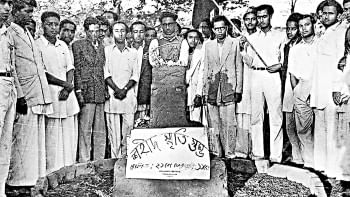




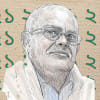
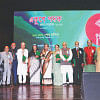
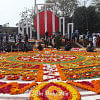
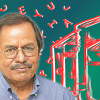


Comments